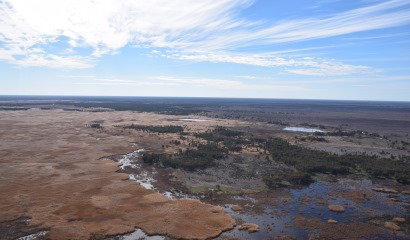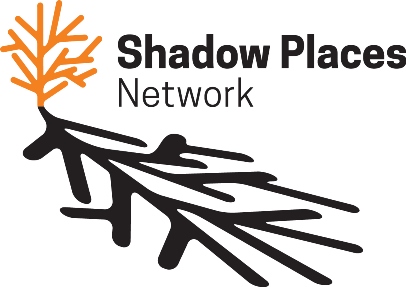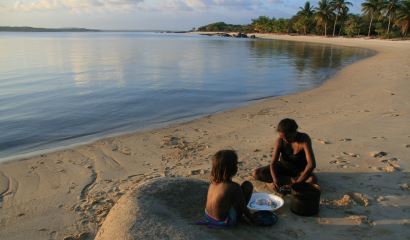Our projects
Remaking wetlands in the Murray-Darling Basin, c.1800-2000
Australia is the driest inhabited continent and people’s relationships with fresh water are central to its history and future. Nowhere is this more evident than in the Murray-Darling Basin (MDB), which has become a crucible of environmental change in Australia. The Basin has been, and remains, the nation’s most important agricultural landscape. However, it poses significant environmental management challenges at a range of scales. Central among these challenges are the competing uses and values associated with rivers and wetlands by, for example, governments, farmers, ecologists and Aboriginal people. The Basin’s wetlands are also important sites of biodiversity and central to Australia’s international conservation obligations, for example under the 1971 Ramsar Convention on Wetlands of International Importance. Many wetlands in the MDB have become important sites of contention between different groups. Despite these challenges and the significance of wetlands in the region, no Basin-wide cultural or environmental history of wetlands as complex ‘social-natural landscapes’ exists (Tsing 2005). This project addresses this significant gap by developing an environmental history of MDB wetlands. Centring on diverse knowledges and claims to authority, and drawing on approaches in environmental history and the broader environmental humanities, this project brings both historical and contemporary approaches to wetlands into clearer focus in order to better address the challenges that these complex places pose to environmental management. In sites that range from perceived wilderness areas to rice fields and sewage treatment works, it engages with the contested understandings and uses of wetlands by a range of different groups; for instance, loggers, hunters, Aboriginal people, governments, farmers and ecologists.
People (project leaders, researchers, partners): Dr Emily O’Gorman (CI), ARC DP160103152
Potential HDR projects/areas: water history, river history, more-than-human geography, environmental history

Helicopter - view towards northern Macquarie Marshes - July 2017
Image credit: Emily O’Gorman
The Shadow Places Network
- Leaders: Dr Fiona Miller (Macquarie University), Dr Emily Potter (Deakin University), Dr Eva Lövbrand (Linköpling University).
- Collaborators: Donna Houston (Macquarie University), Emily O’Gorman (Macquarie University), Jessica McLean (Macquarie University), Linda Tegg (artist), Rod Giblett (Deakin University), Claire and Sean (artisits), Kumi Kato (University of Queensland), Clinton Evers (University of Newcastle), Gina Ziervogel (University of Cape Town)
Potential HDR projects/areas: Environmental and social justice, environmental humanities
 Image credit: SPN Logo
Image credit: SPN Logo
Yolngu women keening songspirals: nourishing and sharing people-as-place
This project extends a close collaborative relationship with Yolngu researchers to nourish and, where appropriate, share Indigenous and Country-led understandings of women’s keening of songspirals. The project’s unique spiral-based framework extends ideas of songlines to generate new knowledge which centres Yolngu women’s conceptions of place and time. Outcomes include Indigenous and non-Indigenous intergenerational and intercultural applied learnings. This will provide the benefit of ensuring keening of songspirals is not lost, helping to fulfil songspirals' potential to enrich and awaken Country, and support deep, healthy relationships between people and place in the context of disruptive environmental change.
People (project leaders, researchers, partners):
The Bawaka Collective is an Indigenous and non-Indigenous, more-than-human research collective. It includes Bawaka Country, Laklak Burarrwanga, Ritjilili Ganambarr, Merrkiyawuy Ganambarr-Stubbs, Banbapuy Ganambarr, Djawundil Maymuru, Kate Lloyd, Sandie Suchet-Pearson and Sarah Wright. Bawaka Country is the diverse land, water, human, and nonhuman animals, plants, rocks, thoughts, and songs that make up the Yolŋu homeland of Bawaka in North East Arnhem Land, Australia. Laklak, Ritjilili, Merrkiyawuy, and Banbapuy are four Indigenous sisters, elders, and caretakers for Bawaka Country together with their daughter, Djawundil. Sarah, Sandie and Kate are three non-Indigenous human geographers from the University of Newcastle and Macquarie University who have been adopted into the family as granddaughter, sister, and daughter. The Collective has worked together since 2006.
 Image credit: Sandie Suchet-Pearson
Image credit: Sandie Suchet-Pearson
Potential HDR projects/areas:
- Human-nature relationships
- Indigenous geographies
- Ethical methodologies
- More-than-human connectivities
Biopolitics of Climate Mitigation: Reconfiguring Human-Cattle Relationships in the Anthropocene
People (project leaders, researchers, partners):
Associate Professor Andrew McGregor, Associate Professor Donna Houston, Associate Professor Lauren Rickards (RMIT, Melbourne). A/Profs Houston and McGregor have previously received funding from a Macquarie University Research Grant: ‘Social Experiments in Urban Food: Investigating Environmental Food Networks in Sydney’ and from a Landcom/UrbanGrowth NSW Universities Framework Agreement project: ‘Growing Food and Density Together: Enabling Sustainability Through Urban Food Production’.
Potential HDR projects/areas: human-animal relationships; politics of food and eating; agriculture and the Anthropocene.
